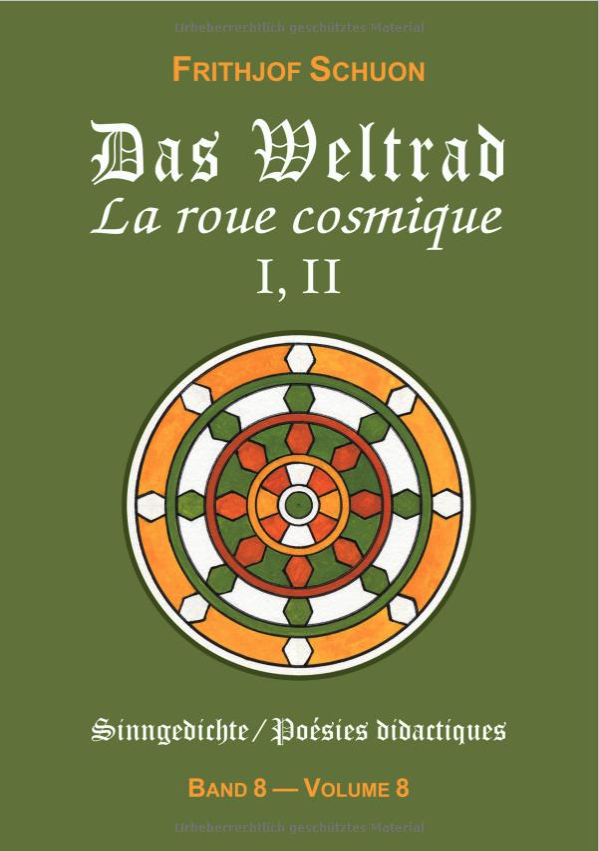
Frithjof Schuon Archive

Briefe
| Titel | Zusammenfassung | Publication Data | Dated |
|---|---|---|---|
| Extract from a letter from Frithjof Schuon | Regarding the question of transubstantiation, which I address briefly in Logic and Transcendence, the Oriental character of the words in question can be seen in their use of ellipsis: Christ did not say, “I am like a vine, like a door”, but he said, “I am the vine, the door”; likewise he did not say, “This conveys divine power in the same way my body conveys divine power”, but he said, “This is my body”. | Logic & Transc. p.237 | 02/01/1976 |
| Extract from a letter from Frithjof Schuon | One should not reproach a science for not being what it does not want to be or for not providing what it does not want to provide. In this respect one should not criticize modern chemistry insofar as it studies the phenomena it intends to study, for on its limited plane it remains within adequation and is not exceeding its strengths; nor can one blame it for remaining within the strictly human perspective in relation to matter, for it need not go beyond this point, and indeed no physical science needs to do so. | Logic & Transc. p.235 | 06/22/1964 |
Featured Books
La roue cosmique I, II (didaktischen Gedichte, Band 8) (Taschenbuch)
Achte Band von Schuon’s Sinngedichten.
Featured Poems
Adastra and Stella Maris: Poems by Frithjof Schuon-Home-coming
Apokatastasis: return of all values,
Adastra and Stella Maris: Poems by Frithjof Schuon-His Will
Mâ shâ’ Allâh: God doeth what He will.
Adastra and Stella Maris: Poems by Frithjof Schuon-The Ray
A dream-web in a thousand webs of dreams,
Featured Articles
The Elect and the Predestination of Knowledge: ‘Esoterism’ and ‘Exclusivism’: A Schuonian Perspective
The author of the essay states his purpose thus: „This paper considers the idea of the elite, or elect, with respect to the problems of Predestination and the notion of the exclusivity of esotericism. It is our opinion that the questions raised here can only be resolved in light of the metaphysical knowledge that is the proper subject of esotericism, where, as said, this is understood as the sophia perennis. Frithjof Schuon stands as the pre-eminent voice of the sophia perennis for our day and age and it is thus that this paper is largely a reiteration of what he has said on these points.“
The Mystery of the Two Natures
Combining a Socratic and a personal approach, Cutsinger looks to the writings and insights of Frithjof Schuon to examine „how in good conscience can a traditional Christian accept the idea that there is a ‚transcendental unity of religions‘?“ The author finds answers in a deeper understanding of Christ’s two natures: human and Divine.
